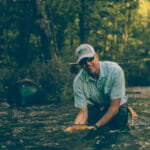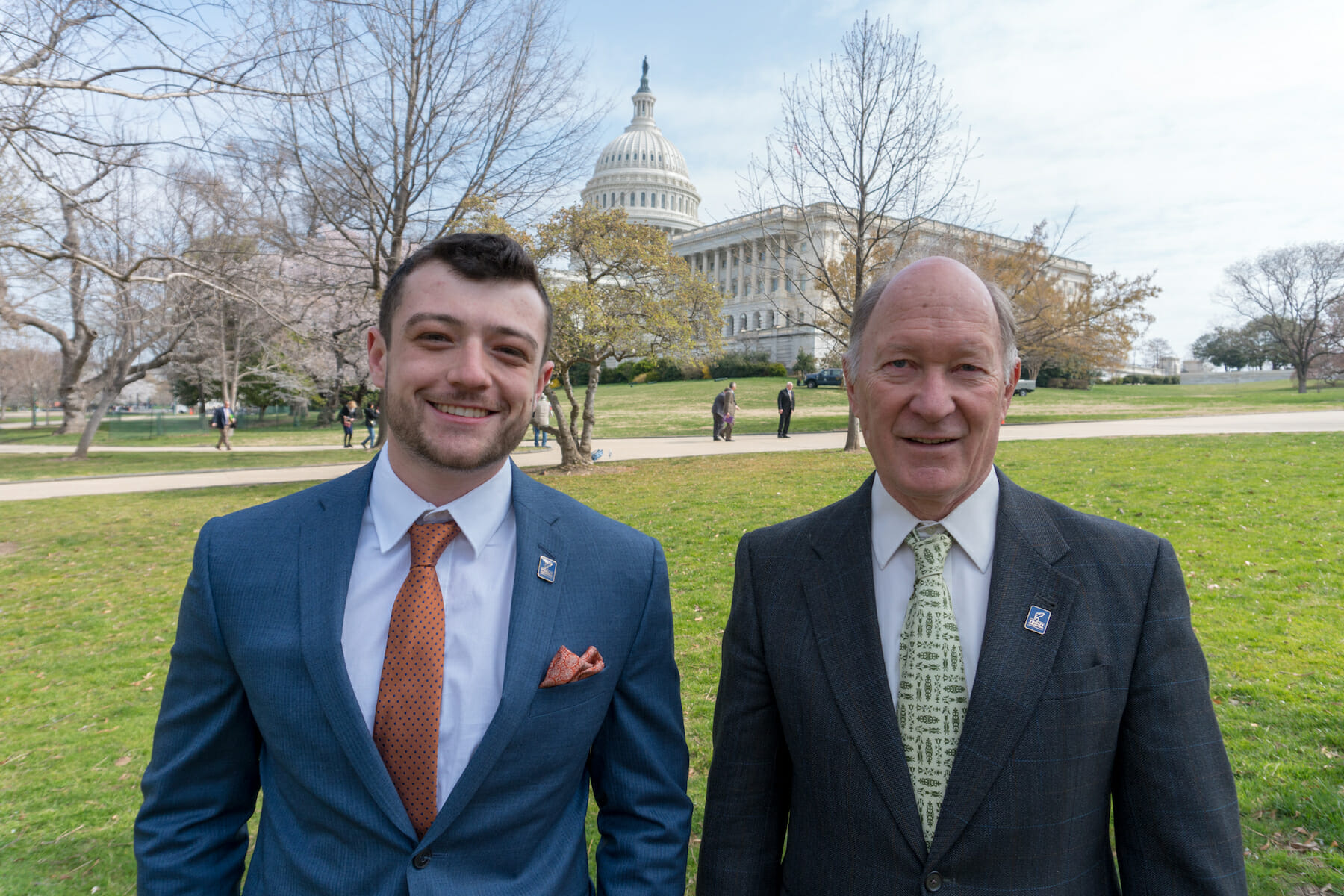New Jersey TU staffer Cole Baldino and Musconetcong Watershed Association volunteer Bill Leavens.
By David Kinney
Last week, Trout Unlimited restoration staff and volunteers from Pennsylvania, New Jersey, and New York visited their congressional offices in Washington D.C. to showcase efforts to restore wild trout habitat in the Delaware River Basin.
In part, it was a Thank You tour. On both sides of the aisle, Basin senators and representatives worked to include $5 million for the Delaware River Basin Restoration Program in the FY18 budget. This new dedicated funding, which will be administered by the U.S. Fish & Wildlife Service, will provide critical investments in projects that improve fish habitat, restore connectivity, address flooding risks, and increase public access—in other words, just the sort of projects that TU does best.
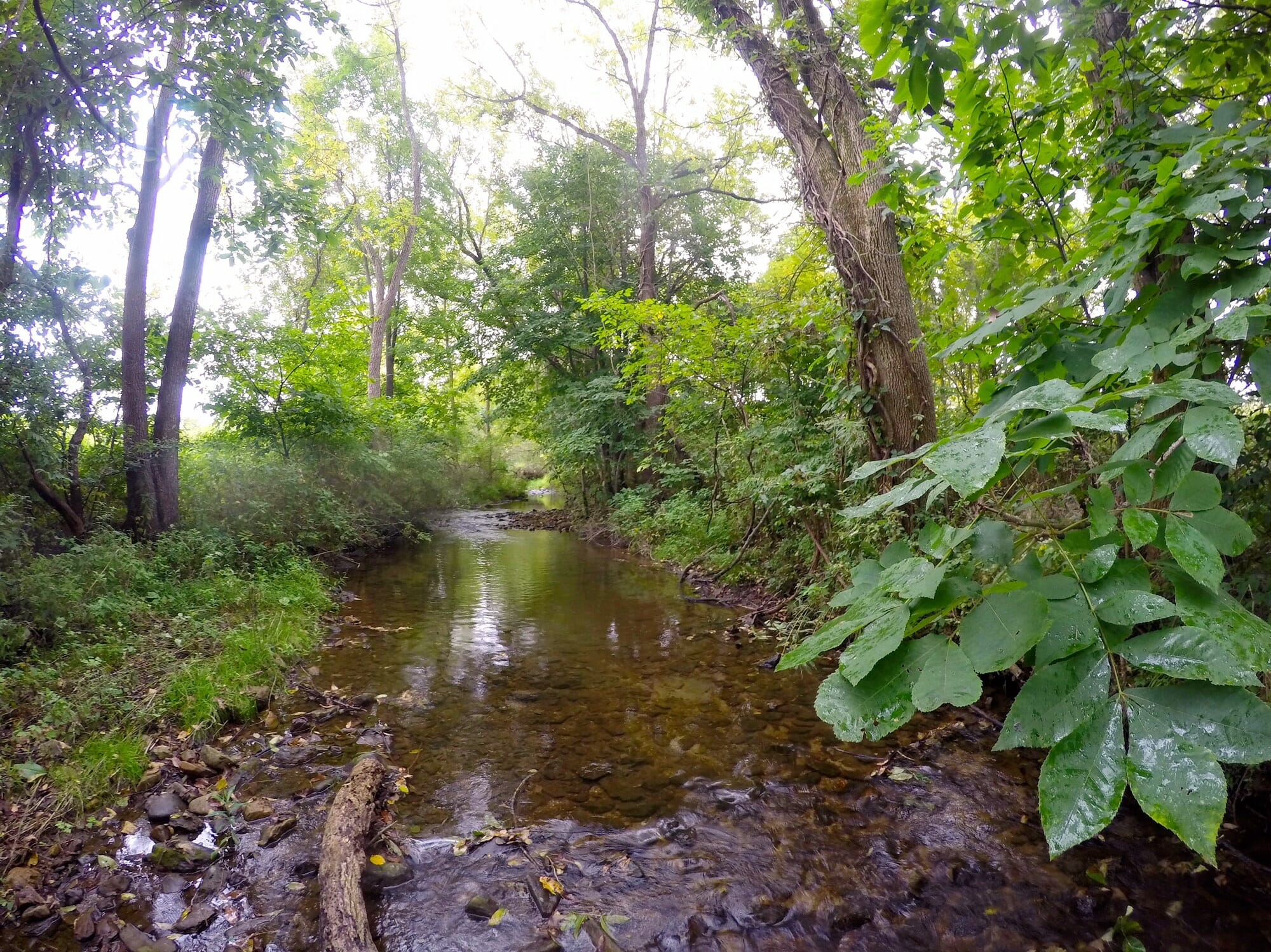
On West Portal Brook in New Jersey, TU has restored one mile of floodplain, riparian, and in-stream habitat, and plans to re-introduce a native strain of brook trout.
But TU’s delegation had another message for their elected representatives: That $5 million is just a down payment. The restoration needs in the watershed are enormous, and demand even more significant funding going forward. That’s why supporters are calling on Congress to double funding for the DRBRP in the coming budget, and fight for other conservation programs that support the work we do, from key Farm Bill programs to important Fish & Wildlife Service partnerships.
To show how this funding can be put to use, TU staff and volunteers came to the Capitol with stories of past successes—and examples of shovel-ready projects in need of investment.
New York
Tracy Brown, TU’s Northeast Restoration Coordinator, joined longtime New York volunteer leader Dave Plummer in D.C. to talk about their efforts to restore and reconnect coldwater habitat in the Catskills region of New York.
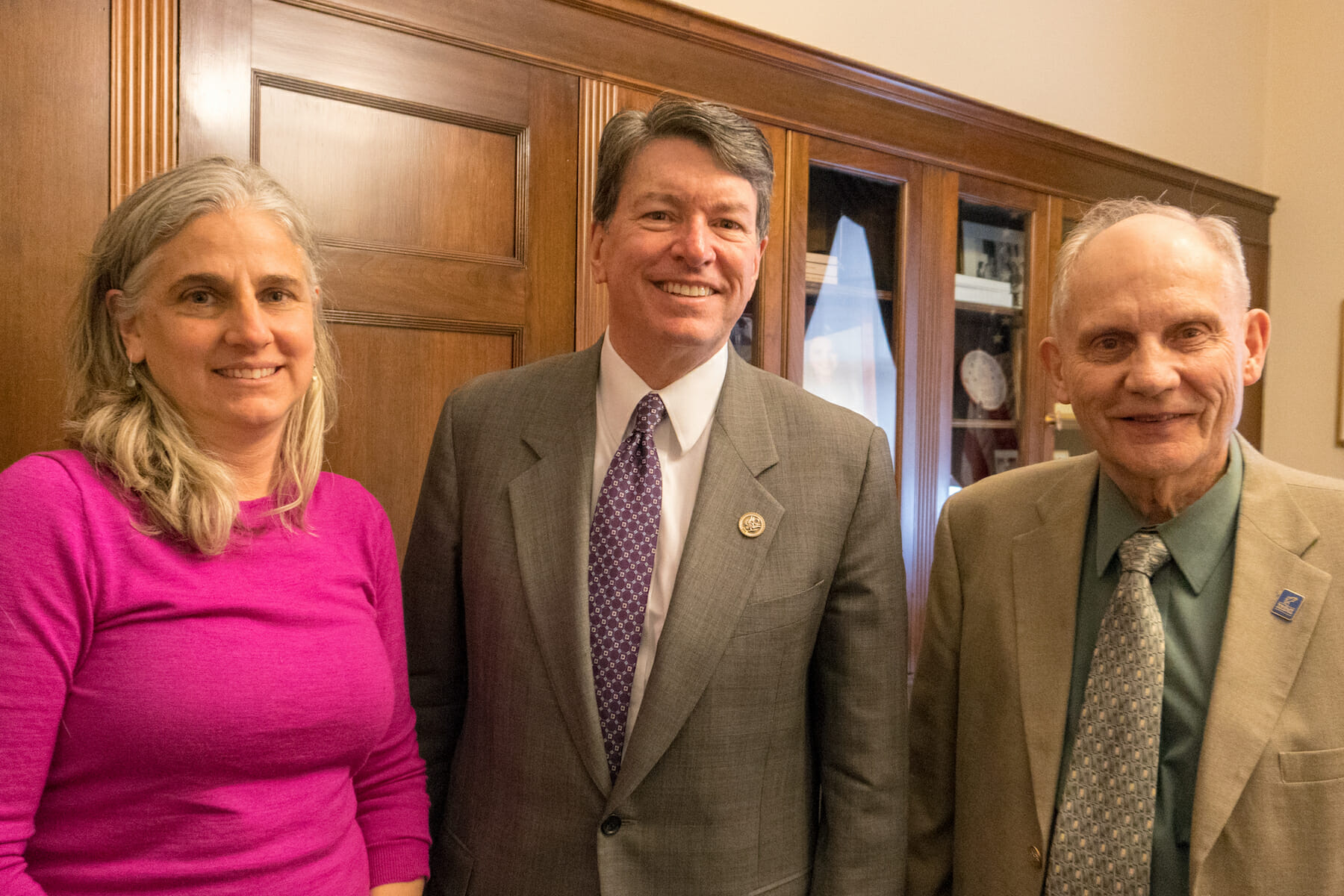 TU Northeast restoration staffer Tracy Brown, Rep. John Faso, and Dave Brandt chapter volunteer Dave Plummer.
TU Northeast restoration staffer Tracy Brown, Rep. John Faso, and Dave Brandt chapter volunteer Dave Plummer.
In meetings with Rep. John Faso and the offices of Sens. Chuck Schumer and Kirsten Gillibrand, Tracy and Dave highlighted their work on Horse Brook, a tributary of the Beaverkill just downstream of Roscoe, N.Y., “Trout Town U.S.A.” There, TU and our partners replaced a double-barrel culvert that was undersized and perched above the streambed. Now the road crossed the stream over a proper bridge that allows fish—and floodwaters—to pass. The project reconnected 2.3 miles of prime brook trout water.
It’s one of many such projects they have completed in the area, and if funding can be secured, more are on the horizon.
Pennsylvania
Greg Malaska, executive vice president of the Pennsylvania Council of TU, and Don Miller, a representative of the Brodhead TU chapter, outlined the ambitious volunteer-led restoration work they are doing with partners on the wild trout waters in northeastern Pennsylvania.
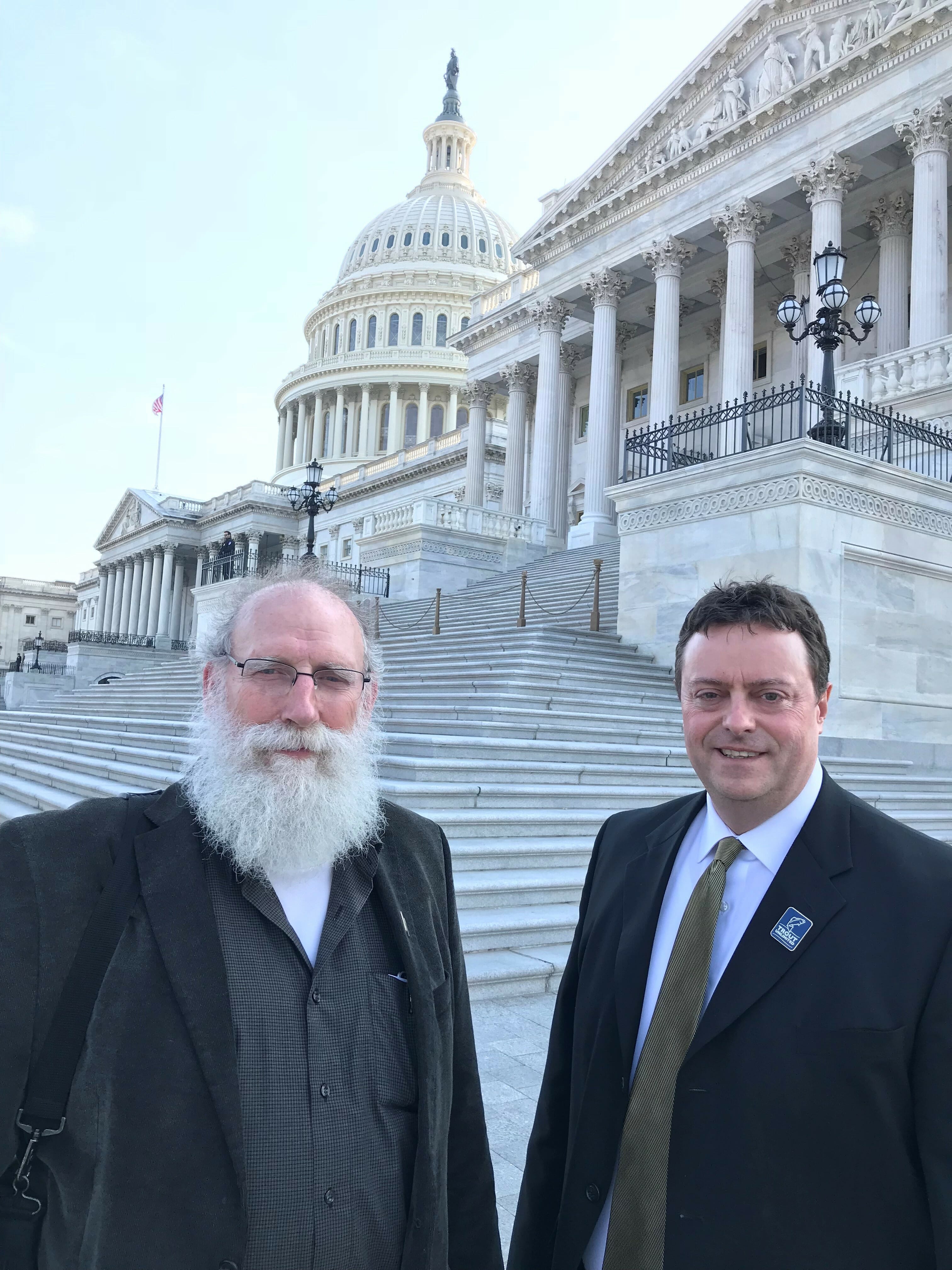
Don Miller and Greg Malaska from TU’s Brodhead chapter in northeastern Pennsylvania.
This year, with the Fish & Wildlife Service, they’re improving a section of Cherry Creek, a 15-mile-long wild trout stream that runs through Cherry Valley National Wildlife Refuge. Using FWS and volunteer labor, and donated rock and Christmas trees, the partners are stabilizing streambanks, installing boulders and logs to improve in-stream habitat, and planting shrubs along the creek. This work enhances fish habitat, but also improves water quality by filtering pollutants and sediment.
The current work involves 2,000 feet—but as Greg and Don told the offices of Reps. Tom Marino and Matt Cartwright and Sens. Bob Casey and Pat Toomey, half a dozen similar projects are in need of similar restoration along this stream.
New Jersey
In the New Jersey Highlands, TU is taking a watershed-wide approach to stream restoration. By repairing eroded banks, reconnecting floodplains, and planting native buffers, we’re reducing runoff and sedimentation. Cole Baldino, manager of the Upper Delaware River Home Rivers Initiative, is leading the effort—work that is clearing the way for the first-ever reintroduction of a native brook trout strain in New Jersey.
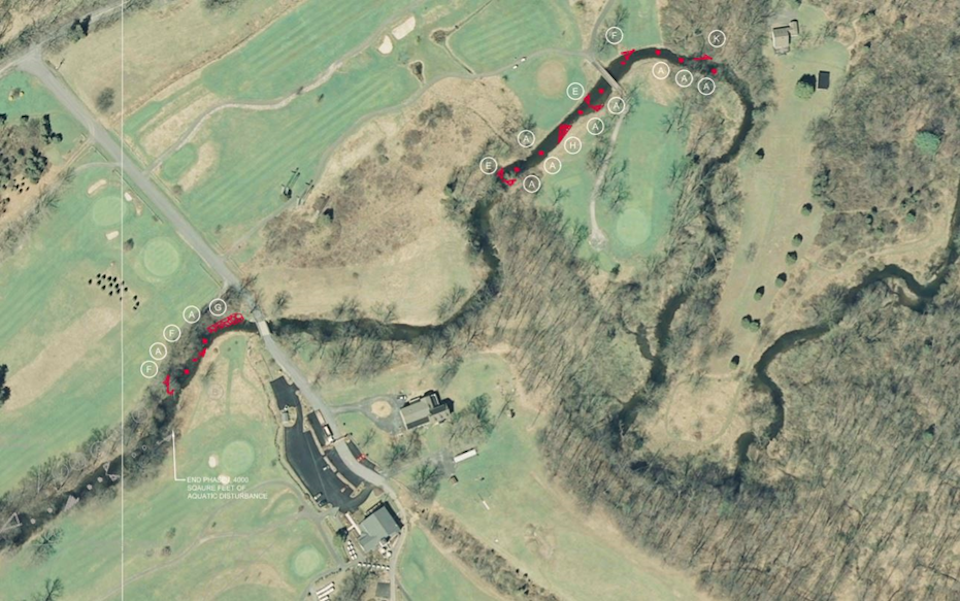
TU is restoring a stretch of Pennsylvania’s Cherry Creek running through an old golf course that has been converted into a national wildlife refuge.
Cole was joined in D.C. by one of his closest partners, Bill Leavens, a Musconetcong Watershed Association representative. That watershed association has been leading the charge on dam removals along the Musky, a Wild and Scenic River, opening up the river for a variety of aquatic species. Once the dams are out, TU and our volunteers work to restore the newly reconnected habitat.
Bill and Cole thanked Reps. Rodney Frelinghuysen and Leonard Lance and Sens. Cory Booker and Robert Menendez for their ongoing support of Delaware River Basin funding, and urged them to continue to push for increased funding levels.
David Kinney is Eastern Policy Director for Trout Unlimited.


